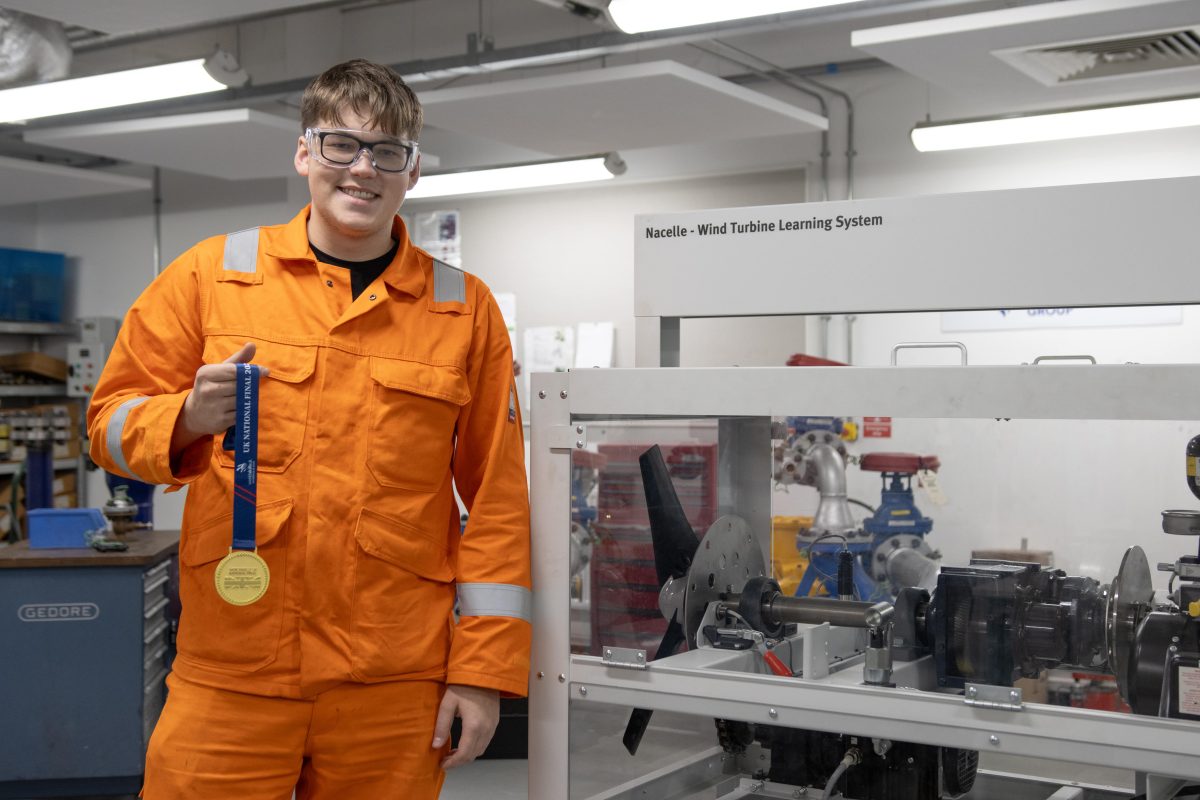Second consecutive year of students reporting better value for money

The 2019 Student Academic Experience Survey of over 14,000 full-time undergraduate students from the Higher Education Policy Institute (HEPI) and Advance HE shows rising value-for-money perceptions.
The key findings in the 2019 Student Academic Experience Survey by Jonathan Neves, Head of Business Intelligence and Surveys at Advance HE, and Nick Hillman, Director of HEPI, include:
41% of students perceive ‘good’ or ‘very good’ value from their course – this is the second consecutive year with a three percentage point improvement; 29% of students perceive ‘poor’ or ‘very poor’ value, which is a drop of three percentage points since last year and five percentage points since 2017.
Value-for-money perceptions differ according to the characteristics of students. Those from Scotland have relatively high positive perceptions (63%) while non-EU international students have relatively low positive perceptions (37%). Recent funding changes for students from Wales have not yet had any material impact on perceptions of value for money.
Teaching quality is the main factor for students who perceive positive value (64%) and tuition fees are the main factor for students who perceive poorer value (62%).
Among students who say their experience surpasses their prior expectations, 59% cite the ‘right level of challenge’ as the key factor. Where students report a worse experience than expected, around one-third (35%) blame themselves for not putting in enough effort. This rises to 42% among BME students.
A new question shows most students feel they were ‘very prepared’ (16%) or ‘slightly prepared’ (44%) for university, compared to under one-quarter who were ‘slightly prepared’ (14%) or ‘very unprepared’ (9%).
Two-thirds of students (64%) would choose the same course and same university if they were applying again. Only 4% would opt to ‘do an apprenticeship’ and even fewer would not enter higher education to ‘get a job’ (3%) or not enter higher education to ‘do something else’ (2%).
There have been small changes to average contact hours and workload in recent years. Since 2015, there has been a decline in independent study (15.2 hours a week to 13.8) and an increase in timetabled contact hours (13.4 hours to 13.9 hours).
Given relatively low scores for student satisfaction with feedback in this and other surveys, a new question for 2019 asked how this might be improved. The most popular option, supported by 63% of students, was ‘more detail on why the mark was awarded’.
Students are significantly more anxious than other young people: just 16% of students surveyed report feeling ‘low anxiety’, against 37% for all those aged 20 to 24.
A new question on disclosing mental health issues to students’ parents or guardians finds high levels of support. Two-thirds (66%) of students support disclosure ‘under extreme circumstances’ and a further 15% support it ‘under any circumstances’.
The results confirm students want more support from taxpayers for the costs of teaching undergraduates: 22% say Government should pay all the costs and 43% say Government should pay more than half the costs. This is out of line with the recent Review of Post-18 Education and Funding(the Augar report) on England, which says taxpayers should continue to pay half.
For the first time, students were asked about their views on two-year degrees. While over four-in-ten students were ‘very positive’ (19%) or ‘positive’ (24%), three-in-ten were ‘negative’ (19%) or ‘very negative’ (10%) and the rest were either neutral (24%) or did not know (4%).
Alison Johns, Advance HE Chief Executive, said:
These findings point to an emerging trend in students’ positive perceptions of value for money which is very welcome and encouraging. It’s particularly pleasing to see teaching at the core of this improvement, and it also reflects good leadership and sound governance, which Advance HE is committed to supporting.
Student well-being remains a huge concern, and if a green light were needed for changes to allow universities to contact parents and guardians where an individual may have mental health problems, we have a very strong signal here in support of that change.
Nick Hillman, Director of HEPI, said:
Our results prove universities have continued to improve the student experience, with a positive impact on students’ perceptions of value for money. Students and staff will recognise the overall picture of incremental improvements in teaching and learning. But students also say there is still much more to do. On many issues, around two-thirds of students are content, which means around one-third are not so positive. Students from non-traditional backgrounds find adjusting to student life harder than others.
Fortunately, it is clear how to deliver for students. They want to be stretched, they want clearer feedback and they want more support for mental health challenges. They also want the Government and taxpayers to cover more of the costs. Given current political and economic uncertainties, delivering further improvements won’t be easy. But it is necessary if our higher education system is to remain among the very best in the world.
Office for Students spokesperson said:
The survey presents an important snapshot of students’ experience. It paints a mixed picture, and some of the findings should give serious pause for thought. It is positive that the proportion of students who believe their course offers value for money has increased for a second year. However, with fewer than half [41 per cent] agreeing their course is good value, there is clearly more to do to for universities to understand and act upon what constitutes value for money in higher education. We see from the survey the extent to which teaching quality is a central factor for students in determining whether they receive value for money, a finding which chimes with our own research on this matter.
The survey provides further worrying confirmation of the extent to which students are struggling with mental health. While an increased willingness to talk openly about mental health in recent years is welcome, these figures provide a stark reminder that more work is needed in this area. The Office for Students has an important role to play in response. Funding from our own challenge will support a range of collaborative projects being taken forward by universities, the NHS and other partners designed to bring about a step-change in mental health support for students.
Universities Minister Chris Skidmore said:
I am delighted to see that significantly more students believe their university and course are delivering value for money – this is testament to our world-leading university sector.
It’s important that students benefit from high-quality courses which give them the best chance of a successful career, which is why we introduced major reforms and set up the OfS to champion the interests of students and promote choice.
Going to university should be a positive, life-changing experience and we are working with the sector to ensure students have the support and pastoral care they need to thrive in higher education.
Could improved student satisfaction be built on goodwill of staff?
Improvements in student satisfaction are built on the goodwill of staff, and action on workload and job security is needed to ensure that the student expectations are met in the future, the University and College Union (UCU) said today.
The union was responding to the findings of the latest annual Student Academic Experience Survey, published today (Thursday) by the Higher Education Policy Institute (Hepi) and Advance HE, which showed that students’ satisfaction with overall teaching and feedback had improved between 2018 and 2019.
UCU said it welcomed the fact that students were more satisfied overall, but warned that increasing job insecurity and work overload threatened the student experience and called on institutions to listen to students and make staff their top priority for investment.
Students also indicated in the survey that they wanted to see their tuition fees spent on teaching and support staff, with teaching facilities (60%), student support services (58%) and teaching staff (51%) identified as key priorities for investment.
UCU acting general secretary, Paul Cottrell, said:
‘It’s encouraging that students are increasingly happy with the quality of teaching and feedback, but too often these improvements are built on the goodwill of staff. Increasing job insecurity and work overload are a threat to the student experience and urgent action is needed to address these issues. Institutions need to listen to students who say that teaching and support staff should be the top priority for investment.’
HEPI is the UK’s only think tank specialising in higher education. It was established in 2002 to influence the higher education debate with evidence and is a non-partisan charity.
Advance HE is dedicated to helping higher education shape its own future: providing insight, so you can use the foresight; enhancing organisational performance, to deliver sustainable change; developing and connecting people, so they can share best practice; accrediting achievement, so you can be recognised; removing the barriers, so all can succeed; and driving positive change, to make higher education better for all. Advance HE is a company limited by guarantee registered in England and Wales.
The Student Academic Experience Survey has been recording the views of students since 2006. Between 4 February and 11 March 2019, 14,072 responses were collected from YouthSight’s Student Panel. Weighting has been applied to the responses to ensure the sample is balanced and reflective of the full-time student population as a whole, and to provide consistency in approach with previous years.











Responses